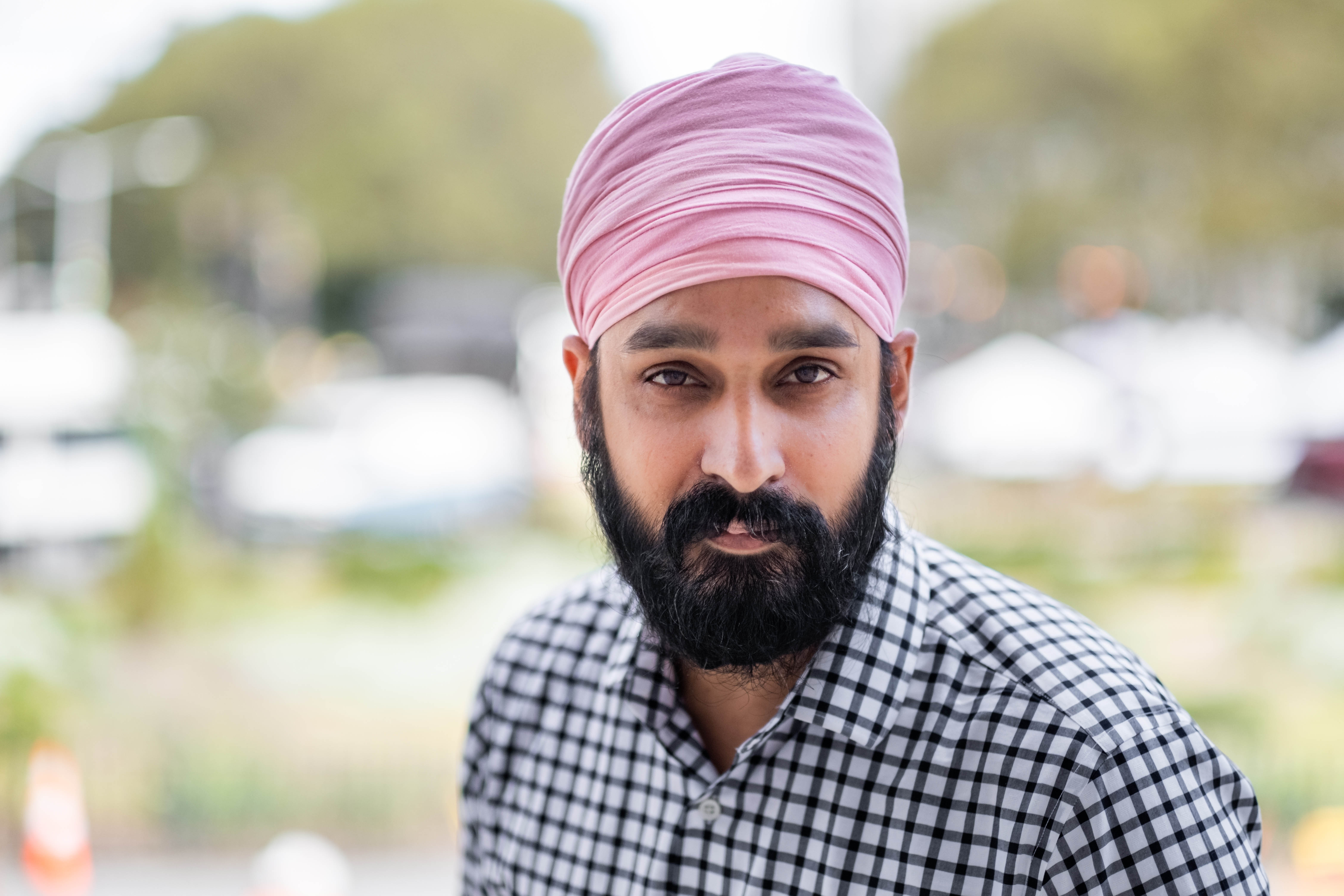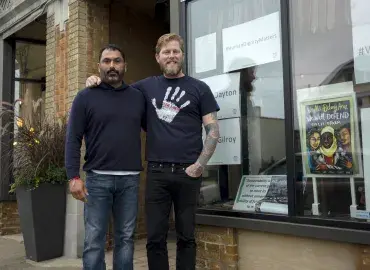KAICIID Fellow Gives Voice to Religious Minorities in the United States

As the only Sikh kids wearing turbans in South Texas in the 1980s, Simran Jeet Singh and his three brothers stood out.
“People were always trying to make sense of us,” he said. “Being visibly different, we had to learn from an early age how to answer questions about our faith and traditions.”
Simran’s parents framed their sons’ visible minority status not as a burden but as an opportunity to bust stereotypes and be good ambassadors for the Sikh community, which they did through sports.
“Whether or not we wore turbans didn’t matter to people if we were good at basketball, football, baseball, soccer. Sports really helped equalise the playing field,” Simran remembers.
The goodwill Simran’s family had cultivated through San Antonio’s sports leagues, interfaith scene, and other community outlets helped sustain them through some of America’s darkest days. After the September 11, 2001 attacks, turbaned Sikhs became targets of xenophobic hate crimes across the country. Simran was in high school at the time, and his family joined regular conference calls with other Sikhs to discuss what was happening and what they could do.

“We realised that it wasn’t effective or helpful to only address the concerns of our community. We needed to address these issues at their core. That meant working together with Muslim, Arab, and other communities,” he said.
These conference calls helped steer Simran to a career in interreligious and intercultural dialogue. They also launched the Sikh Coalition, a New York-based civil rights organization where Simran now serves as senior religion fellow.
The Sikh Coalition works to protect civil and human rights for all people, including the right to practice faith without fear.
“It started as a mechanism to protect our survival, to make sure we weren’t all killed in racist hate attacks. Since then we’ve expanded our mission to be proactive as well. We’ve worked to seize the Sikh spirit of activism and agency to move beyond victimisation frameworks that paint us as passive targets with no control,” Simran said.

The Sikh Coalition has an education team working to include Sikhism in school curriculum and a communications team spreading positive stories about Sikhs in society. The need for both teams became painfully obvious when a gunman murdered six Sikhs at a gurdwara in Wisconsin in 2012.
“The media coverage of Sikhism was horrible, and there were not enough Sikhs speaking about our community,” Simran said of the shooting’s aftermath. “I felt a responsibility to step up and correct misperceptions about our faith. That’s what inspired me to write a reporting guide to help journalists accurately cover us and when I really began talking about Sikhism publicly.”
In 2014 when International Basketball Federation (FIBA) rules forced two Indian Sikh players to remove their turbans before playing a game, Simran launched a successful multireligious media campaign pressuring FIBA to lift its headgear ban, which it did in 2017. Simran’s brother Darsh was the first turbaned Sikh to play basketball under North America’s National Collegiate Athletic Association, so this Sikh Coalition effort felt particularly personal.
“Muslim, Jewish, and other groups came together to explain how the headgear ban negatively affected us and negatively shaped how our kids imagine their place in society,” Simran said. “Our uniting message was that sports should bring people together, not divide and discriminate. This multireligious component helped show that other communities had skin in the game.”

Today Simran wears many hats, as the idiom goes, and not all of his interreligious work is with the Sikh Coalition. He advises the governor of New York and the Committee on Foreign Relations on religious matters, teaches introductory courses on Sikhism, Hinduism, Islam and Buddhism at universities and seminaries, and serves as chaplain and religious life adviser to students.
When a travel ban was issued in the United States against several Muslim-majority countries in 2017, Simran was teaching Islamic Studies at Trinity University in San Antonio and was adviser to the school’s Muslim Student Association. He started a letter-writing campaign encouraging Americans to reach out to members of their local Muslim community offering solidarity and words of love.
In the letters, which were hand-delivered to local Mosques, Simran and others offered words of support to their Muslim neighbours and thanked them for being an important part of the community.
“I was struck by how grateful they were,” he said. “Sometimes the most helpful thing you can do is just reach out to other marginalised people and let them know you are there for them.”
Simran says bigotry and hate crimes targeting religious minorities are still high in the US but that positive efforts to resolve this hate have never been stronger.

“The most powerful way this is coming through is at the grassroots and individual level, between people of different faiths who have never interacted but who are trying to understand and stand up for one another,” he said.
Simran is doing his part through formal education and public education, which includes writing a regular column for Religion News Service that addresses ideas around representation and opens up new spaces for new conversations with his readers.
“We don’t see much media coverage of Buddhists, Hindus, Muslims and Sikhs in America,” he said. These are the communities who end up being marginalised and whose stories I’m trying to tell. Anyone who is underrepresented, I try to bring their voice to the table.”

During the first three months of 2019, Rabbi Shmuly Yanklowitz’s grassroots…

Arno Michaelis and Pardeep Singh Kaleka met under horrific circumstances.…
